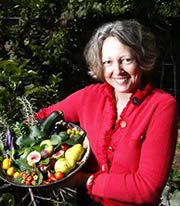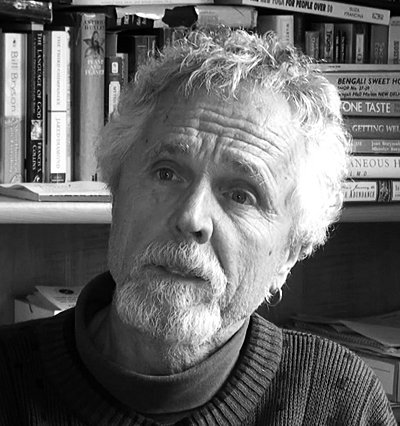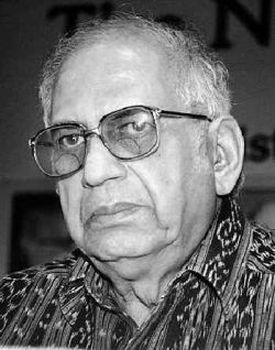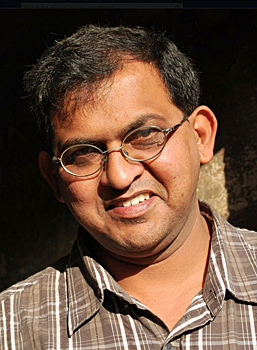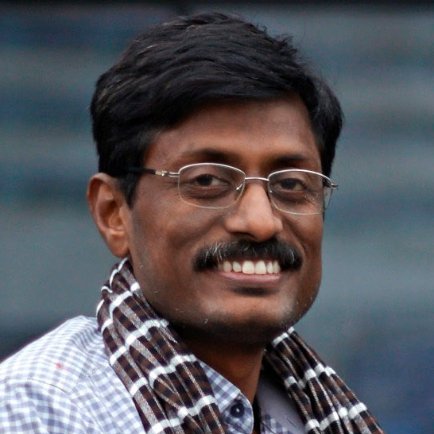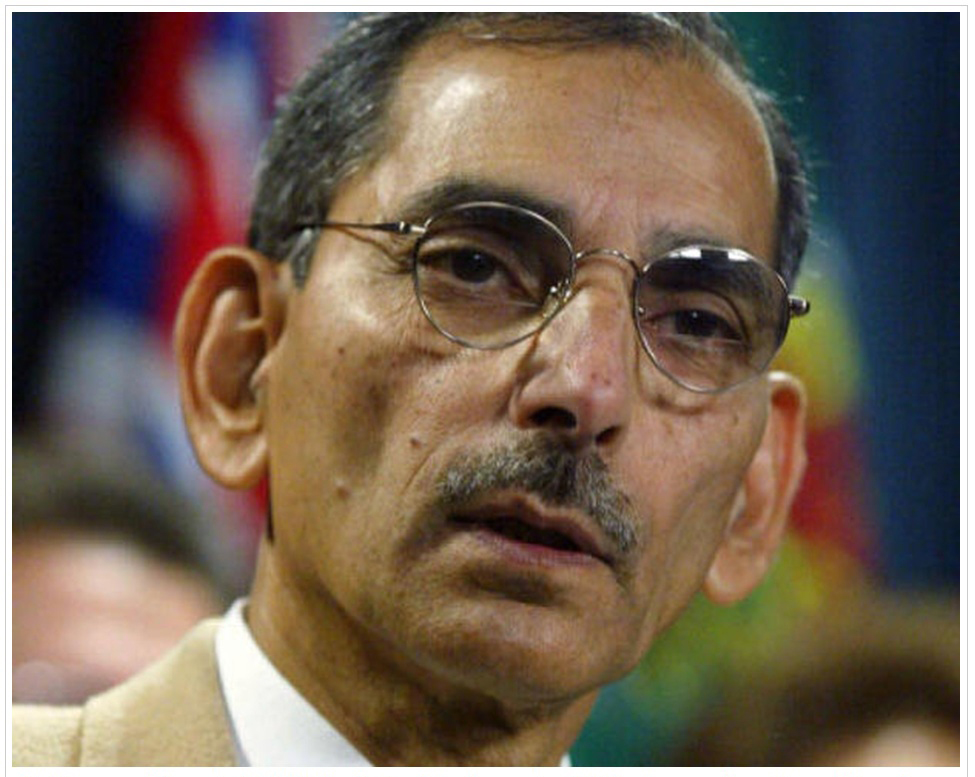“Hell no Monsanto – we don’t want your GMO”
The chant reverberated across the open grounds before the art gallery in Vancouver, in pouring rain, and over a sea of umbrellas. I had never met Laura (NoEnbridge) Yates face to face before. And in a few minutes, she became one of my heroines.
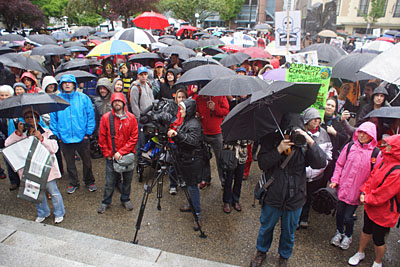 In a strong and unflinching voice, she started the gathered crowd going, raising the level of passion till the protesters matched her in full throated cry – hell no Monsanto, we don’t want your GMO.
In a strong and unflinching voice, she started the gathered crowd going, raising the level of passion till the protesters matched her in full throated cry – hell no Monsanto, we don’t want your GMO.
There were quite a few people with massive TV cameras wrapped in waterproof covers. Some were likely from the media. But what I saw in the TV later on, they missed the point, and the passion. Monsanto was just a news item, nothing more. But for the people gathered, it was far more than having fun shouting around in the rain. It was a call at arms for protection of farmers, farm produce and the very food we chose to eat.
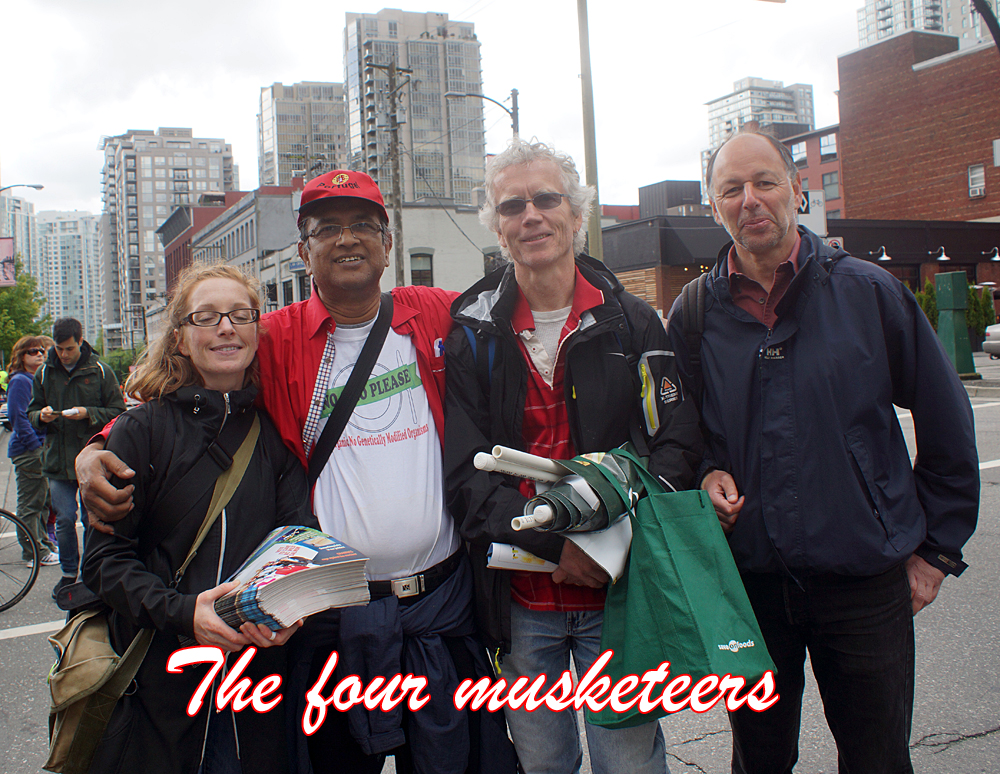 At the end point of the march, at BC place, we finally got the mini-group picture – of the four musketeers that joined hands with the thousands in Vancouver and millions around the world, to bring down the evil empire. Thats pocket dynamo and march coordinator super volunteer, Laura (NoEnbridge) Yates, with Tony (citizen journalist) Mitra, Phil (leading GE free Surrey) Harrison and Tony (leading GE free Vancouver) Beck.
At the end point of the march, at BC place, we finally got the mini-group picture – of the four musketeers that joined hands with the thousands in Vancouver and millions around the world, to bring down the evil empire. Thats pocket dynamo and march coordinator super volunteer, Laura (NoEnbridge) Yates, with Tony (citizen journalist) Mitra, Phil (leading GE free Surrey) Harrison and Tony (leading GE free Vancouver) Beck.
Clip 01 : Laura Yates addresses the protesters
[youtube jQ0T9h5HVXc]
And now, we have the second clip of the event, going all the way to the end of the march, to present a very original rap music by Swami G – named MONSANTROCITY. Borrowing from the farmer suicide catastrophe in the GMO cotton belt of India, the song combines the sad and alarming story of naive farmers falling for the sales gimmick of Monsanto and getting ever deeper into a spiral of debt resulting in hundreds of thousands of farmers committing suicide by drinking the very pesticide sold by Monsanto.
Clip 02 : Swami G on MONSANTROCITY
[youtube qzLI7gjZqr4]
In clip 03 we see that, even when joining a global protest against a single corporation, a first ever event for this planet, one can do it with rhythm, rhyme, music and dance. We do not know the names of the impromptu dancers on the street and are thankful for their spontaneous exuberance. They show us how to send off MONSANTO with a song and a dance.
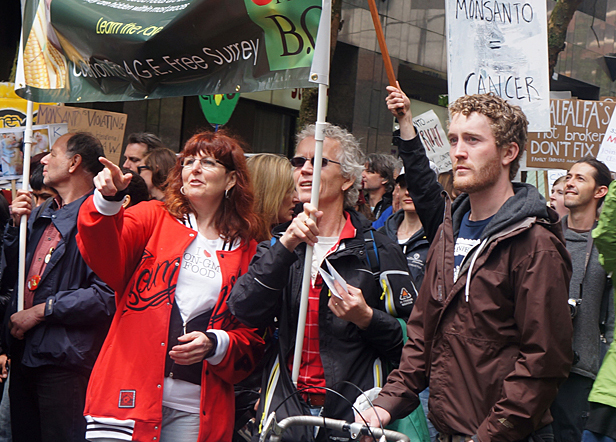
Tony, Heather, Phil & Jeff
Included also is a still photo of Phil, Jeff, Heather and Tony, not just cause they are friends, but because Tony and Phil are actually engaged in trying to have Vancouver and Surrey declare themselves GMO free sometime in near future, and we should wish their efforts all success and extend a helping hand where possible.
Clip 03 : Monsanto sent off with a song and a dance
[youtube Ih7sbNL_kKc]
Bobbie Blair of Ge free Langley, was introduced by Shyanne and took the mic, representing not a scientist or and expert on GMO, but as a concerned mother, and touched a sympathetic chord among the listeners. As he urged people to reconnect with their food source, and support local farmers, so the community can get good food on one side, and local farmers can survive the same time – she got a thundering applause. Well said – Bobbie. Keeping GMO away calls for a multi faceted approach, one where we ourselves need to change the way we source our food.
Clip 04 : Bobbie Blair addresses the crowd
[youtube h5QATlJxw3Q]



 In a strong and unflinching voice, she started the gathered crowd going, raising the level of passion till the protesters matched her in full throated cry – hell no Monsanto, we don’t want your GMO.
In a strong and unflinching voice, she started the gathered crowd going, raising the level of passion till the protesters matched her in full throated cry – hell no Monsanto, we don’t want your GMO. At the end point of the march, at BC place, we finally got the mini-group picture – of the four musketeers that joined hands with the thousands in Vancouver and millions around the world, to bring down the evil empire. Thats pocket dynamo and march coordinator super volunteer, Laura (NoEnbridge) Yates, with Tony (citizen journalist) Mitra, Phil (leading GE free Surrey) Harrison and Tony (leading GE free Vancouver) Beck.
At the end point of the march, at BC place, we finally got the mini-group picture – of the four musketeers that joined hands with the thousands in Vancouver and millions around the world, to bring down the evil empire. Thats pocket dynamo and march coordinator super volunteer, Laura (NoEnbridge) Yates, with Tony (citizen journalist) Mitra, Phil (leading GE free Surrey) Harrison and Tony (leading GE free Vancouver) Beck.

